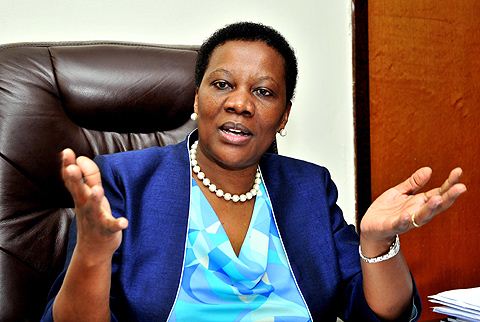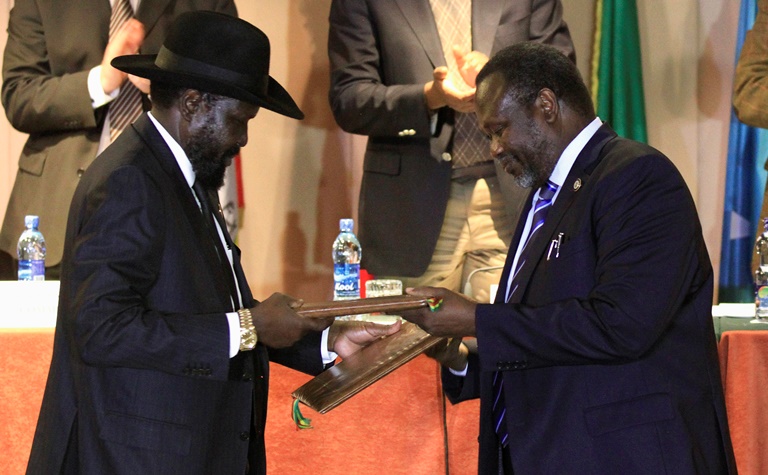A nurse administers the Pfizer-BioNtech Covid-19 vaccine to Margaret Keenan , 90, at University Hospital in Coventry, central England on December 8, 2020. PHOTO | AFP
A 90-year-old British woman has become the first person in the world to receive a coronavirus vaccine as the UK begins its mass vaccination programme.
Margaret Keenan was given the injection — the first of the 800,000 doses of the Pfizer-BioNTech vaccine to be rolled out in the coming weeks after Britain approved it last week — on Tuesday, making the UK the first country in the world to administer the drug against Covid-19.
Keenan was innoculated at her local hospital in Coventry, central England, on Tuesday morning at 06.31GMT (9.31am Nairobi time), a week before she turns 91.
Up to four million people, among them those in their 80s and some healthcare staff considered to be the most vulnerable populations, are expected to receive the vaccine in the UK by the end of the month.
“It’s the best early birthday present I could wish for because it means I can finally look forward to spending time with my family and friends in the New Year after being on my own for most of the year,” Ms Keenan told Reuters.
The European country has further placed orders for 40 million doses, enough to inoculate 20 million people, as the vaccine is administered in two doses for a person to develop immunity against Covid-19, at a time when the world has recorded 67 million cases and 1.5 million deaths.
Britain is the worst-hit European country by Covid-19 with over 61,000 deaths.
According to the international press, most of the doses ordered by UK are not expected to be available until next year, although government sources said another four million doses should arrive in the country by the end of the year.
The news came in as health experts attending the Nation Media Group’s second instalment of Kusi Ideas Festival in Kisumu said that of the three successful vaccines (developed by Moderna, Pfizer/BioNtech, and AstraZeneca/Oxford), African countries like Kenya are more inclined towards the AstraZeneca-developed ChAdOx1-S, (also known as AZD1222) since it has a more conducive storage temperature which many countries can manage. The vaccine can be stored under standard refrigeration unlike the first two. The Pfizer/BioNtech must be stored at -70 degrees Celsius.
“I could have more hope for the AstraZeneca vaccine coming and getting us to where we are because we can easily store it. But a vaccine is not going to be the magic bullet if people abandon the other safety measures,” said Dr Khama Rogo, Founder of the Centre for the Study of Adolescence and a panellist at the function.
Dr Rogo also expressed concerns that there could be a lot of hype around the vaccines, especially in Africa, a continent that has been struggling to procure vaccines like those against polio.
“The discovery of a vaccine is quite different from having a vaccination programme put in place. Africa has to go through both stages and examine how it will get these vaccines which the continent is not able to purchase on its own,” he added, saying that vaccines should be the side discussion “because for us, we may not even get it by Easter of 2021”.
Historic moment
The global scientific community has recorded a historic moment by getting three safe and effective vaccines against Covid-19 from concept to approval in under a year, something which did not seem possible at the onset of the pandemic. However, now that it has arrived, there is another mountain to climb — getting the jab to all of those who need it most.
Already, wealthy nations representing just 13 per cent of the world’s population have cornered more than half (51 per cent) of the promised doses of leading Covid-19 vaccine candidates.
More than 80 per cent of the US drug maker Pfizer’s vaccine, which is more than 90 per cent effective in preventing the disease, has been sold to the richest governments across the world, according to an analysis by a UK-based campaign group.
According to an analysis by Global Justice Now, about one billion doses have been bought by the rich governments. Big purchases include the EU with 200 million doses and an option for a further 100 million, the UK with 40 million, and the US with 100 million and an option to buy another 500 million.





